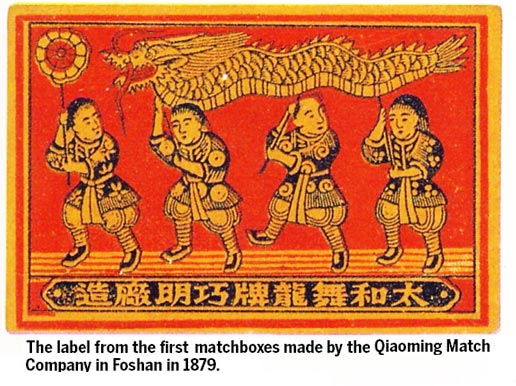Cases of fire

Since the first friction match was invented by John Walker, an English chemist and apothecary in 1827, designs on matchboxes have been a magnet for collectors.
Related: No match for progress
The first matchbox label was a portrait of Walker himself, 13 years earlier than the first postage stamp.
"The small labels on matchboxes are encyclopedias, embracing everything you can imagine," says Wang Yuxiang, a phillumenist for nearly 40 years.
One big source of pride is a label from the first matchboxes made by the Qiaoming Match Company in 1879 in Foshan, Guangdong.
It is a picture of four kids performing a traditional Chinese dragon dance. There are two versions of the label, a smaller one for a box, and another for a package.
Wang also has the collection of labels with plum blossoms. This design was Chairman Mao Zedong's favorite, made by the Beijing Match Factory.
It's said that Chairman Mao loved the labels so much that he didn't throw away the empty boxes, but refilled them instead.
There are also labels featuring political posters with slogans from the country's historical periods, from the Great Leap Forward movement (1958-61) to the "cultural revolution" (1966-76).
Wang doesn't have the biggest collection in the capital. Zhao Sheng, a retired worker of Beijing Match Factory who started working in the factory in 1951, has accumulated over 260,000 matchbox labels from more than 30 countries.
Zhao's collections have been exhibited 50 times in China and overseas, including twice in the National Museum of China.
Li Fuchang, director of Phillumeny Association of Beijing, another enthusiastic collector, has set up a museum at home to display his vast collections.
Though the spark of the match industry is going out, the labels are hot items thanks to their growing scarcity. An annual auction is held for collectors, who established a nationwide association in May.
But Wang doesn't look forward to making money from his collections.
"Unlike many other collections like antiques and paintings, which sometimes have bubbles and frauds, phillumeny is a sheer love for culture and life," Wang says.






















